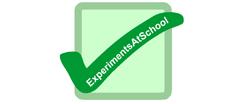- View more resources from this publisher
 ExperimentsAtSchool
ExperimentsAtSchool
ExperimentsAtSchool
ExperimentsAtSchool allows students to collect and analyse experimental data to draw practical conclusions in subjects including science, geography and psychology. Aimed at students aged 7 to 16, the experiments help them to develop and improve their data handling and statistical skills.
Each experiment has associated activity sheets and teachers' notes which give the aim and objectives of the experiment and suggest possible investigations the children could undertake using that particular experiment.
The Project was originally launched in 2003 with the support of the Department of Education, Specialist Schools Trust and the Association for Science Education, and worked in conjunction with the Centre for Effective Learning in Science at Nottingham Trent University. It is now run from Plymouth University by the ICSE (International Centre for Statistical Education).
These resources are made available under an open government licence v3.0.
Resources
Filter
Making a Healthy Plateful
In this activity, Key Stage Two students are given a 'draw and label' diagram about balanced diets. A pie chart is given, showing portion sizes for the different food types appropriate to a healthy diet. Students then use this data to answer questions about which foods should be eaten most or least. The resource...
Observation and the Elephant
This resource asks students to read an engaging poem by John Godfey Saxe and to explain the moral of the poem and how it might relate to the importance of careful observation during experiments. Students are required to show critical thinking skills and understand the importance of controlling variables and good...
Sugar and Spice and All Things Nice *suitable for home teaching*
This resource focuses on the sugar content of soft drinks and the constituents of a balanced diet. Students use the data provided from secondary sources to answer a series of questions which explore the effect of drinking soft drinks on students' sugar intake and to compare this to recommended daily amounts. The...
Thanks for the Memory
In this activity, students investigate the three main types of memory - sensory, short-term and long-term. An explanation is given for each one and linked to a memory experiment. Students are also given five memory tasks to complete which include looking at factors that affect peoples' memories and ways in which to...





